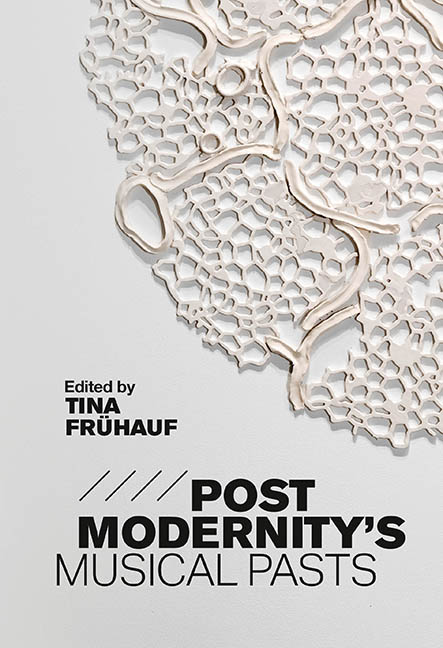Book contents
- Frontmatter
- Dedication
- Contents
- List of Illustrations
- List of Music Examples
- List of Contributors
- Acknowledgments
- About the Cover
- Introduction
- Part I Time and the (Post)Modern
- Part II Manifestations of History
- Part III Receptions of the Past
- Part IV Nostalgias and the Temporalities of Belonging
- Bibliography
- Index
10 - Historical Nostalgia, Nature, and the Future in Three Iconic Albums from 1971: Aqualung, Who's Next, and Led Zeppelin IV
Published online by Cambridge University Press: 28 April 2020
- Frontmatter
- Dedication
- Contents
- List of Illustrations
- List of Music Examples
- List of Contributors
- Acknowledgments
- About the Cover
- Introduction
- Part I Time and the (Post)Modern
- Part II Manifestations of History
- Part III Receptions of the Past
- Part IV Nostalgias and the Temporalities of Belonging
- Bibliography
- Index
Summary
After a series of exhausting European and American tours in 1969, Jimmy Page and Robert Plant of the British hard-rock group Led Zeppelin escaped to the remote cottage Bron-Yr-Aur in Wales for a few weeks of relaxation and song-writing. Upon their return to London, they recorded Led Zeppelin III. The album, released by Atlantic Records on 5 October 1970, is dramatically diff erent from the band's previous hard-rock style, especially in its reliance on acoustic instrumentation. In an interview with Chris Welch of Melody Maker, Page confirms the new course: ‘We’ll never stop doing the heavy things, because that comes out of us naturally when we play. But—there is another side to us. The new album is totally different from the others and I see that it's obviously a new direction.’ In that interview Page also looks ahead to the next album, promising an even greater evolution of the band's musical style. The fourth album, commonly known as Led Zeppelin IV, hit the market a year later, on 8 November 1971. It is generally viewed as their most iconic work. Looking back at these creative years, Page exclaims during an interview with Brad Tolinski of Guitar World: ‘Our attitude was, “Fuck the sixties. We’re going to chart the new decade!”’
And a new decade it was. In 1971 Great Britain stood at a crossroad of economic crisis and social anxiety. The rebuilding of London and other British cities after World War II had produced a functional, modernist landscape of housing projects and urbanization, a process that carried into the following decades. Between 1945 and 1970 over 6.2 million homes were built, with peak periods just after the war and again, under the Conservative government, in 1951. By 1971 these once-futuristic concrete visions had greyed and were showing signs of decay. In this postindustrial age, a new generation of young people began to question the earlier attitude toward urban and technological development. Combined with the disappointing attempt at technological revolution under Prime Minister Harold Wilson (1964–70), the grey landscape of urban development mirrored the dim reality of their future prospects.
- Type
- Chapter
- Information
- Postmodernity's Musical Pasts , pp. 225 - 248Publisher: Boydell & BrewerPrint publication year: 2020



